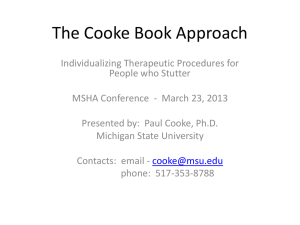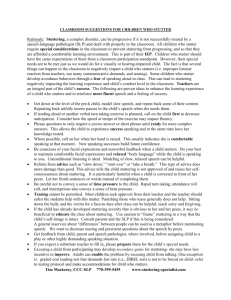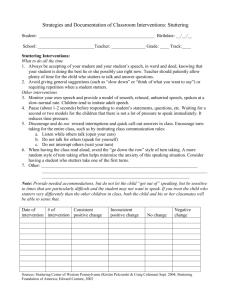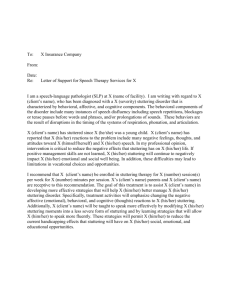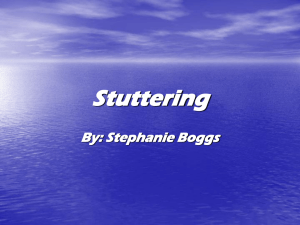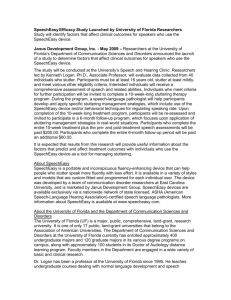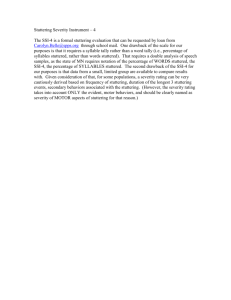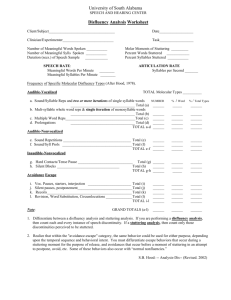Communication Disorders: STUTTERING - NIU
advertisement
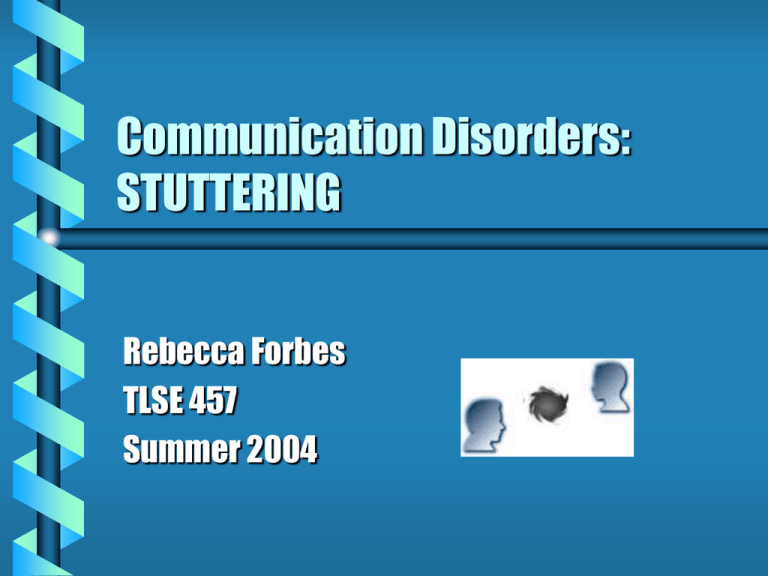
Communication Disorders: STUTTERING Rebecca Forbes TLSE 457 Summer 2004 What is stuttering? Speech impairment characterized by • abnormal hesitations • repetitions, blocks, and/or prolongations of sounds, words, or syllables • avoidance or substitution of words – example: “closet” stutterers Specific Characteristics Repetitions Avoidance of talking Fear & Embarrassment Irregular breathing Related behaviors Blocks Prolongations Tremors Pitch & loudness rise • foot tapping, eye blinks, head turns What causes stuttering? No known cause, only controversy Theories • • • • Genetic disposition Biological explanation Family Factors Psychological factors – ex: conditioning Prevalence/Incidence Rates Most frequent type of fluency disorder About 1% of the population stutters (2-3 million people) More boys than girls stutter (4:1 ratio) Average person: 7-10% of speech is disfluent >10% disfluency leads to stuttering 50-70% of people who stutter have at least one relative who also stutters Assessment/Diagnoses Speech and language pathologists • read out loud • pronounce specific words • talk (time wpm) • hearing tests Tests determine whether or not a person needs speech therapy ex: NIU Speech Clinic What can teachers do? Instructional Ideas talking slowly & clearly answer ?’s after a pause stay calm, don’t be bothered (patience!) give reassurance & encourage talking about his or her stuttering create a plan for class participation allow increased response time VIDEO CLIP Technology and Stuttering Feedback machine monitors speech (Delayed Auditory Feedback) Classroom PowerPoint Presentations • educates peers while decreasing teasing • helps overcome the fear of speaking Interesting Facts about Stuttering Stuttering occurs most often in left-handers No stuttering when singing, speaking in unison, or whispering Famous people that stutter • • • • • George Burns Thomas Edison Charles Darwin Albert Einstein George Washington Bruce Willis Marilyn Monroe References for Stuttering Resources used in this presentation • http://www.stuttering.net/stuttering-facts.html • http://www.wiu.edu/users/mfrwq/whatisstut.html • http://asha.org/speech/disabilities/stuttering.cfm • Resources for school personnel • http://nsastutter.org/content/index.php?catid=8 • Video => Stuttering: Straight Talk for Teachers • The Stuttering Foundation, 2002 • Book => Stuttering and Your Child: ?’s and answers • Book => Understanding Stuttering by: Nathan Lavid • Book => Tangled Tongue: Living with a Stutter by: Jock A. Carlisle
